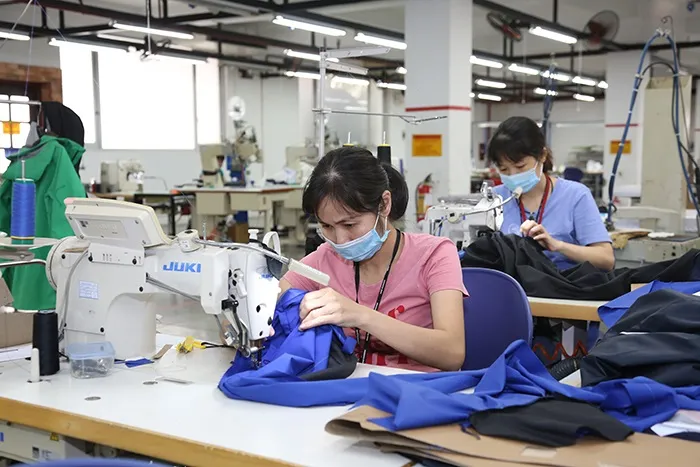
To accomplish this, the government has set its sights on three key drivers: exports, services, and consumption. While positive signs abound in the export sector, particularly in agriculture, fisheries, and tourism, the domestic consumption front remains in need of rejuvenation.
1. Consumption, as the final link in the production-distribution-consumption chain, holds pivotal importance. A slowdown or stagnation in consumer spending can trigger a domino effect, leading to production stagnation, inventory pile-ups, job losses, and increased poverty. The specter of the COVID-19 pandemic and the global economic crisis has cast a shadow over Vietnam's economy. Widespread risk aversion has driven people to save more, with spending mostly restricted to essential items like food and healthcare.
Ms. Nguyễn Phương Nga, Business Development Director at Kantar WorldPanel Vietnam, aptly summed up the situation: "While GDP is on the rise, concerns linger regarding rapidly increasing incomes, costs, and employment – factors that influence consumer spending."
The once-thriving Ho Chi Minh City has yet to regain its pre-2019 vibrancy. As many as 30-40% of commercial streets lie dormant, including the bustling district encompassing famous streets like Nguyen Hue, Dong Khoi, Le Loi, and Le Thanh Ton. During early October, visits to the city's four largest electronics centers revealed a stark contrast from bustling times, with three of them virtually empty, and one seeing only a smattering of customers attended to by a sparse service staff. The revival of shopping streets and the happiness of the populace hinge significantly on government actions.
2. Thailand, on the other hand, has taken pioneering steps to foster a consumer mindset. Prime Minister Srettha Thavisin's standout move, just 20 days after taking office in August 2023, involved injecting baht 560 billion (equivalent to USD 16 billion) directly into Thai citizens' e-wallets to stimulate consumption. Each Thai citizen aged 16 and above received baht 10,000 (over USD 280, or VND 7 million) to spend on goods and services, with the entire sum to be disbursed over six months starting in September 2023.
This initiative, a top priority for Prime Minister Srettha, aims to distribute cash flow uniformly across all sectors and reinvigorate the Thai economy. The Prime Minister's reasonable expectation is that the Thai economy will benefit fourfold from the initial USD 16 billion injection.
But Thailand didn't stop there. In early October 2023, the government and Thai Consumer Production Associations embarked on an audacious plan to collectively lower prices on more than 151,000 goods and services until the end of the year, effectively offering people free shopping. This initiative encompasses 288 businesses, including 88 food and necessities manufacturers, along with 83 major department store chains and retailers. The discounts are substantial, with food and beverages, essential items, and agricultural supplies all included, with maximum discounts ranging from 40% to a staggering 87%.
The Thai Minister of Commerce emphasized that these price reductions on consumer goods would stimulate spending and reignite economic growth, with an expected minimum growth rate of 5%. Thailand's speedy and robust economic recovery, exemplified by welcoming 13 million foreign tourists in the first half of 2023, underscores the effectiveness of these policies.
3. Meanwhile, the Vietnamese government has also implemented policies to stimulate economic growth, including a 2% reduction in VAT from 10% to 8% effective from July 1, 2023, until year-end. This measure is expected to deliver approximately VND 44,000 billion in tax reductions while boosting consumer demand and promoting production and business, thereby aiding the country's economic recovery.
Additionally, the government has allocated a VND 120,000 billion package for social housing loans, valid until 2030. However, the direct impact on individual consumers is relatively limited with the 2% VAT reduction and the VND 120,000 billion housing package.
The divergence in policy approaches between Vietnam and Thailand reflects their respective developmental perspectives. While some countries, such as Thailand, Malaysia, and various European nations, adopt policies directly putting money into the hands of their citizens or substantially reducing the prices of goods, Vietnam focuses on technical infrastructure and macroeconomic growth policies that aim for a broader impact, promoting a "rising tide, rising boat" philosophy. The efficacy of these strategies will become clearer as time progresses, offering valuable lessons on how to boost consumer demand and spur economic growth.




















